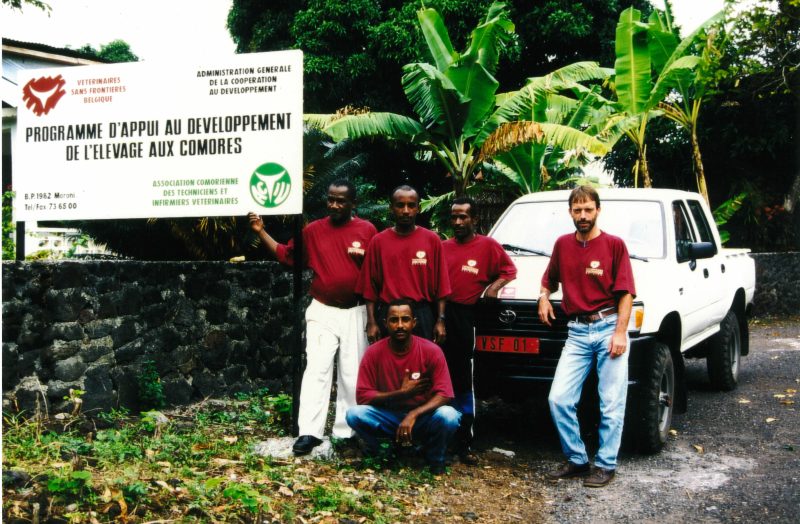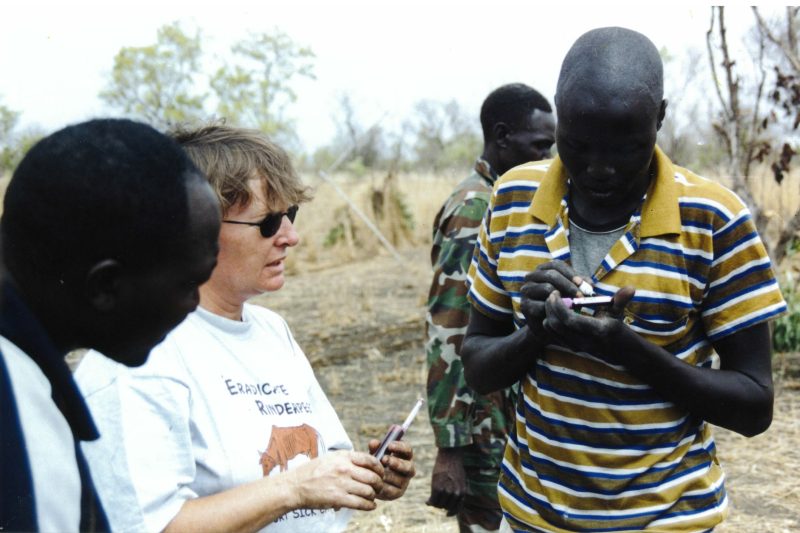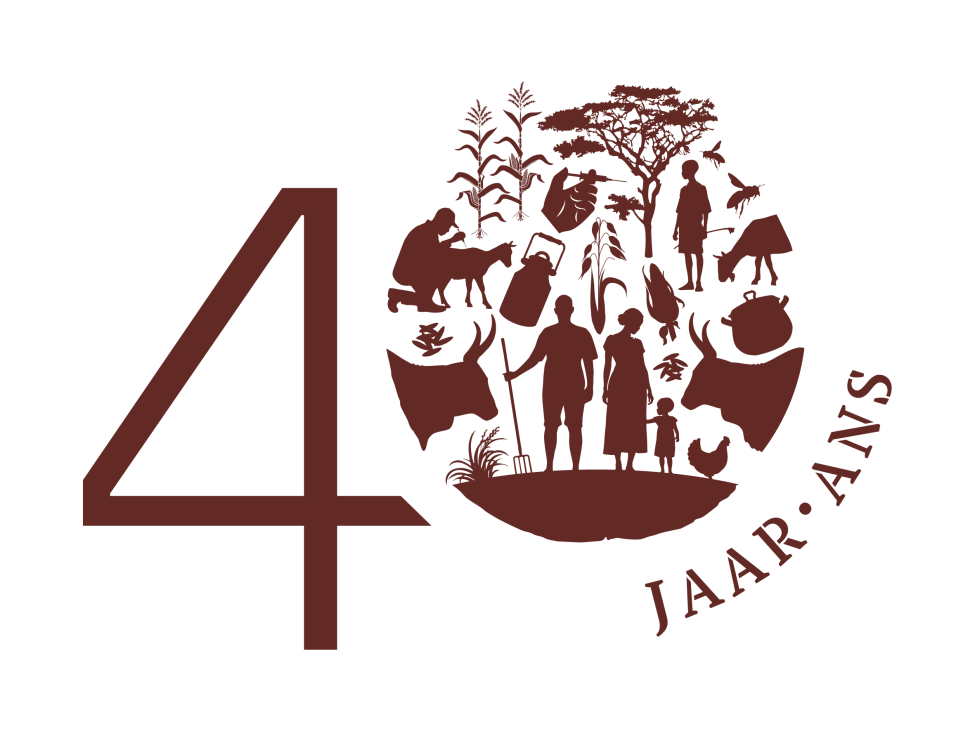This year we’re celebrating an exceptional milestone, because Vétérinaires Sans Frontières (VSF) Belgium will have a stunning 40 candles on its birthday cake. For four decades now, we have been committed to stimulating livestock keeping, vaccinating animals and protecting human, animal and environmental health. That means four decades of unconditional commitment, intense teamwork and partnerships across borders. This is the story of an organisation that has brought hope to livestock keepers in the remotest corners of the world.
From Challenge to Conquest: our Victory over Rinderpest

In 1997, Vétérinaires Sans Frontières Belgium started working in the Comoros. On the right is Eddy Timmermans, who is still employed by our organisation after 40 years.
It all began in 1985, in the thick of a devastating famine in East Africa. Three idealistic vets, including Eddy Timmermans who still works for us, decided to join forces and set up Vétérinaires Sans Frontières Belgium. Their French counterparts, who had set up Lyon Vétérinaires Sans Frontières two years earlier, served as a source of inspiration. Driven by the conviction that healthy animals contribute to healthy communities, one of them left everything behind to move to Ecuador. He worked with the very first local vet to lay the foundations of our organisation today.
The journey towards official recognition as an NGO followed in 1997, but the work had begun earlier in the nineties in Sudan, where we joined the global battle against rinderpest. Against a backdrop of civil war, we trained local animal health workers and worked with communities to fight rinderpest. Joep van Mierlo, our general director, recalls: “There was a civil war raging at the time, there were no authorities, no government, in fact there was nothing at all. Vétérinaires Sans Frontières Belgium went there anyway, to train the local people to detect rinderpest.” The result was that Sudan was declared officially free from rinderpest in 2005, and a worldwide victory followed in 2011: the disease had been wiped out. Eddy Timmermans adds: “Our contribution to the eradication of rinderpest was one of our greatest successes. In the remotest areas, we trained local animal health workers because there were no vets there. Without them, our efforts would never have succeeded.”
A force to be reckoned with

Partly thanks to Vétérinaires Sans Frontières Belgium, Sudan has been free from rinderpest since 2005.
Besides Sudan, our work soon extended to countries such as Mali, the Comoros and Kenya in the 1990s, followed by Rwanda, Niger and Mauritania in the early 2000s. Burkina Faso, Uganda and the DR Congo followed suit, and in the past decade we have added Burundi, Tanzania and Benin. In all these regions, farming families live mainly from livestock keeping. They often face immense challenges, such as drought, floods and conflicts. Furthermore, we are often active in politically unstable areas, which official bodies refer to as ‘no-go zones’. “We have been working for decades in red zones that embassies often discourage people from visiting. But that is where our help is most urgently needed”, the director emphasises.
The organisation that was once so small has grown into a force to be reckoned with. Everywhere in the world, from remote villages to vast savannahs, we help people help themselves. Vétérinaires Sans Frontières Belgium believes in the power of local populations. Along with some twenty local partner organisations, we support these communities and strengthen their resilience, Timmermans explains: “Our mission is not simply to set up a local vet, but to ensure that livestock keepers have access to veterinary care whenever they need it. That is the key to lasting change.” In other words, we don’t just tackle problems: we also create solutions that can be perpetuated by people themselves. “It is important for us not to see our initiatives as unconditional aid. We are working on a revenue model that enables communities to build up long-term sources of income”, Van Mierlo stresses.
The core of Vétérinaires Sans Frontières Belgium: One Health

Mauritania, 2024. After 40 years, we are still active in ten African countries. © Karaï
Central to all of Vétérinaires Sans Frontières Belgium’s work is the ‘One Health’ principle: the understanding that human, animal and environmental health are inextricably linked. This belief, in combination with mutual dependence, is at the heart of all our interventions and every step we take. Our expertise in this area has been recognised by the WOAH, the World Organization for Animal Health, which asked us to write a reference document: “Around 2020 we were asked to write out the curriculum for Community Animal Health Workers. That is proof of our global impact”, says Van Mierlo. The attention of this international organisation – one that is crucial for us – is due to our collaboration with other VSF organisations, now eleven in total, most of which are in Europe. They have united to form Vétérinaires Sans Frontières (VSF) International. The curriculum is just one of the promising plans for the future that our NGO and the wider VSF family are looking forward to with enthusiasm.
If we look back over the past 40 years, we see a history of resilience, innovation and teamwork. While we are celebrating this, we are looking to the future with the same determination. Together, we will continue to build a world where compassion and solidarity break down borders, and animals, people and ecosystems live in synergy.
Let’s celebrate together what we have already achieved and keep working passionately on everything that lies ahead.

